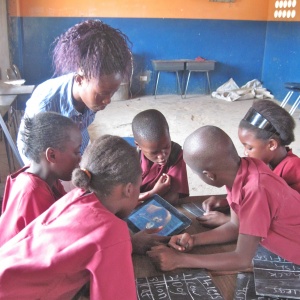OER4Schools/LfL/5 principles expanded
From OER in Education
< OER4Schools | LfL
| Resource details | |
| Title | 5 principles expanded |
| Topic | |
| Teaching approach | |
| Learning Objectives | |
| Format / structure | |
| Subject | |
| Age of students / grade | |
| Table of contents | |
| Additional Resources/material needed | |
| Useful information | |
| Related ORBIT Wiki Resources | |
| Other (e.g. time frame) | |
| Files and resources to view and download | |
| Acknowledgement | This resource is part of the OER4Schools programme. |
| License | |
Focus on Learning
- Everyone is a learner
- Learning relies on the effective interplay of social, emotional and cognitive processes
- The efficacy of learning is highly sensitive to context and to the differing ways in which people learn
- The capacity for leadership arises out of powerful learning experiences
- Opportunities for leadership enhance learning
Conditions for Learning
- Cultures nurture the learning of everyone
- Everyone has opportunities to reflect on the nature, skills and processes of learning
- Physical and social spaces stimulate and celebrate learning
- Safe and secure environments enable everyone to take risks, cope with failure and respond positively to challenges
- Tools and strategies are used to enhance thinking about learning and the practice of teaching
Learning Dialogue
- Practice made explicit, discussable and transferable
- Active, collegial inquiry focussing on the link between learning and leadership
- Coherence through sharing of values, understandings and practices
- Factors that inhibit and promote learning are examined and addressed
- Link between leadership and learning is a concern for everyone
- Different perspectives explored through networking with researchers and practitioners
Shared Leadership
- Structures support participation in developing learning communities
- Shared leadership symbolised in day-to-day flow of activities
- Everyone encouraged to take a lead as appropriate to task and context
- Everyone’s experience and expertise is valued and drawn upon as resources
- Collaborative activity across boundaries of subject, role and status are valued and promoted
Mutual Accountability
- Systematic approach to self-evaluation embedded at every level
- Focus on evidence and its congruence with core values
- Shared approach to internal accountability is a precondition of external accountability
- National policies recast in accordance with school's core values
- Choosing how to tell own story while taking account of political realities
- Continuing focus on sustainability, succession and leaving a legacy

